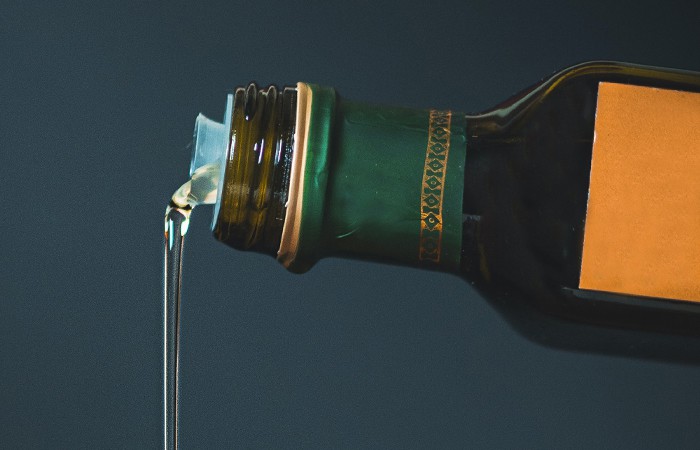Mirin is a type of cooking rice wine typically used in Japanese cooking. It has alcohol content but only a very minimal amount. The alcohol content of mirin is probably the reason why many people are curious if it can also make you drunk.

So, can you get drunk off mirin?
The answer is no. You cannot get drunk off mirin because it is not even meant for people to drink in the first place. Instead, it is only intended to be used as a food seasoning.
While certain cooking wines are considered good enough for you to drink, it is not easy to get your hands on pure mirin. It is because many mirin products you can find at grocery stores already contain added preservatives and sweeteners.
Hon mirin is pure mirin with 14% alcohol content. If you do have any plan to drink mirin cooking wine, hon mirin is the only type or form of mirin that is considered drinkable.
On the other hand, condiments similar to mirin has the same taste as pure mirin but with additional ingredients and less than 1% alcohol.
Continue reading below to learn more about mirin:
General Information about Mirin
Mirin is a type of syrupy liquid used to season, glaze, and tenderize food. It is also one of Japan’s most popular condiments that are often used in many Japanese recipes.
It is a form of cooking rice wine that resembles sake. The only difference is that the alcohol content of mirin is lower than sake but has higher sugar content.
However, mirin doesn’t have any added sugar. The sugar found in mirin is formed naturally during the fermentation process. Its alcohol content is reduced when mirin is heated. Unlike mirin, Japanese sake is something that you can enjoy as a drink.
Mirin is a very sweet liquor that contains around 40% to 50% sugar content and 14% alcohol content. It is used in Japanese cuisine in noodle soup bases and simmered dishes. It is also added in teriyaki dishes to add a touch of luster as well as in savory and thick sauces with a soy sauce flavor called kabayaki.
The alcohol content of mirin helps get rid of raw odors like those from fish, allows ingredients to retain their structure even during simmering, and enhances flavor infusion. The sugar content adds a luster to teriyaki bases and sweetness to the cooked dishes. Once heated, mirin also produces an even more savory and pleasant aroma.
Mirin and soy cause are a delicious combination when equal parts of 1:1 are used to achieve the basic tastes of Japanese flavor. Due to the alcohol content of mirin, if you cannot consume alcohol, it is recommended that you either don’t use mirin or boil off the alcohol content first before using it. You can heat it at boiling temperatures for 1 up to 1.5 minutes.
Can You Drink Mirin?
Hon mirin is the only drinkable form of mirin. You can drink it provided that the listed ingredients are shochu, rice malt, and glutinous rice. Mirin which contains other additional ingredients is not suitable for drinking. If the mirin bottle says it is mirin-like seasoning, it is not considered drinkable. You would want your mirin to be real or pure mirin or hon mirin so you can drink or consume it as a liquor.

What is Mirin Used For?
As mentioned earlier, mirin is a special ingredient added to fish to lessen the fishy odor. It is also usually served with sushi. It can lend a natural sweet taste to the dish. Mirin can also thicken sauces, which makes it a great option for glazes and marinades.
Ingredients and Manufacturing Process of Mirin
Mirin contains shochu distilled liquor, glutinous rice, and rice koji, which is the fermentation starter. To produce mirin, the glutinous rice is steamed first before it is mixed with shochu distilled liquor and rice koji.
The mixture will then undergo maturation and saccharification in large tanks for one to two months. It is then pressed. The liquid that is pressed out will then be heated and filtered.
What are the Cooking Characteristics of Mirin?
The following are some of the notable cooking characteristics of mirin:
- The umami components of peptides and amino acids and the sweetness of mirin result in dishes with a rich taste.
- The different sugars found in mirin, including sucrose and glucose, add a delicate sweetness to Japanese cuisine.
- The variety of sugars present in mirin can add luster to the food ingredients.
- The tiny molecules can allow easy permeation to ingredients, while the alcohol content helps ease the infusion of umami and sweetness.
- The alcohol content of around 14% is effective in eliminating the strong odors of certain food ingredients.
- The natural action of alcohol content and different types of sugar helps the ingredients to maintain their structure while simmering. The retaining structure while simmering is not just for appearance as it also helps preserve the ingredients’ natural umami.
What Can You Make with Mirin?
You can prepare homemade sushi rice vinaigrette, eel sauce or kabayaki sauce, or teriyaki sauce. You can also add mirin to broths, marinades, and sauces to add a tangy and sweet reminiscent of Japanese cuisine.
You can also use mirin as an additional ingredient to rice. It lends a better taste to rice and enhances its consistency and quality. You can even add it to the pancake mix as a replacement for milk to make the mixture thicker. Mirin can also be used to get rid of peculiar odors from canned foods, meat, or fish.
Don’t Drink Mirin
Mirin is one of the most versatile cooking ingredients that can add a tangy and sweet flavor to many dishes. However, there is no way that you can get drunk off it because it is not meant for you to drink in the first place.
There are tastier and better alcoholic beverages out there that you can choose from. Meanwhile, if you are worried about mirin’s alcohol content while cooking, you can also opt for a mirin-like seasoning. You can also heat the mirin first before you add it to the food or let it cook with the dish.





